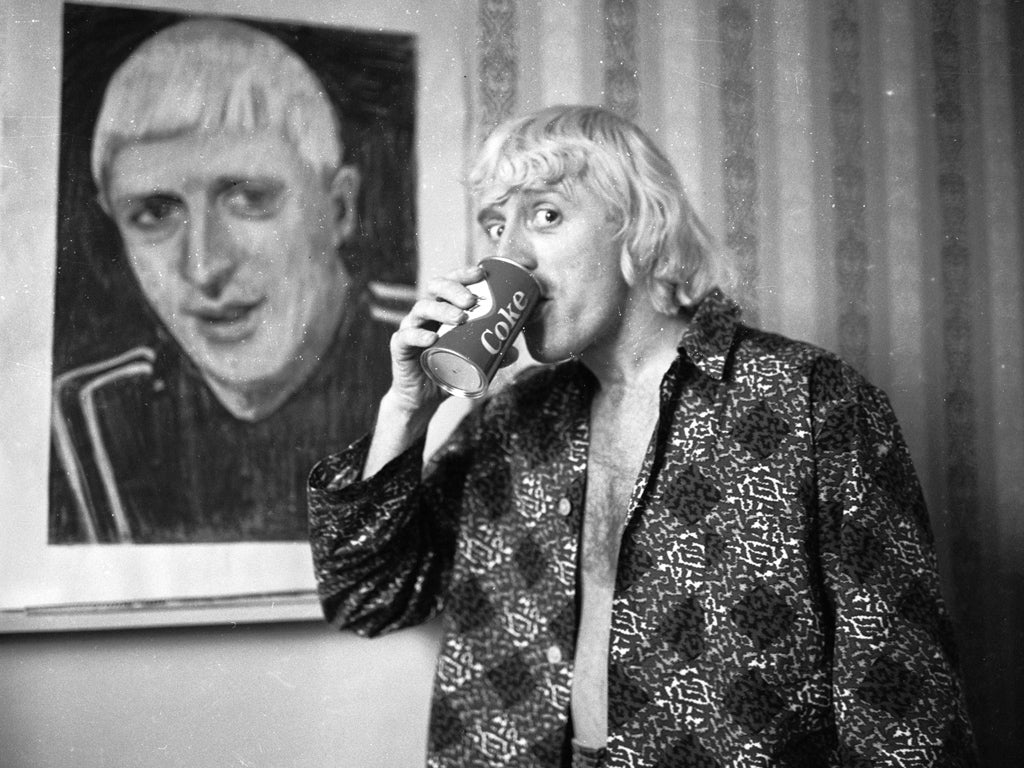I was told 'psychiatrists would be out of a job if we could stop child abuse'
As the Jimmy Savile allegations come to light, it's time we spoke about the strong link between child abuse and mental illness.

Your support helps us to tell the story
From reproductive rights to climate change to Big Tech, The Independent is on the ground when the story is developing. Whether it's investigating the financials of Elon Musk's pro-Trump PAC or producing our latest documentary, 'The A Word', which shines a light on the American women fighting for reproductive rights, we know how important it is to parse out the facts from the messaging.
At such a critical moment in US history, we need reporters on the ground. Your donation allows us to keep sending journalists to speak to both sides of the story.
The Independent is trusted by Americans across the entire political spectrum. And unlike many other quality news outlets, we choose not to lock Americans out of our reporting and analysis with paywalls. We believe quality journalism should be available to everyone, paid for by those who can afford it.
Your support makes all the difference.The recent expose of child abuse allegedly perpetrated by Sir Jimmy Savile was a massive shock to me.
As a 1980s kid I used to love Jim’ll fix-it and was once greatly envious of those children who got to sit on his knee. Now not so much. While not being my greatest hero, Savile was none the less an integral part of my childhood. A part which has now been completely tarnished.
Were I not a doctor, these recent allegations of abuse may have felt like a watershed moment for me. An ending of a certain naivety bestowed upon me by the good fortune of a sheltered, happy and abuse free childhood.
As a medic, that innocence ended when I first set foot on a psychiatric ward a decade or so ago. I was astounded at how many of the inpatients of both sexes had been abused as children or young adults.
In medical school I had learnt that mental illness was something that randomly afflicted people due to a combination of genetics and bad luck. I had been taught that in mental illness brain chemicals go wrong in the same way that chromosomes go wrong in Downs syndrome or blood clotting goes wrong in haemophiliacs.
Sitting reading through the medical records of the female patients on the acute psychiatric ward, there was not a single one who had not suffered some sort of trauma as a child or young adult. Stories of sexual abuse, physical abuse, neglect and usually a combination of all three jumped out from almost every set of notes.
The psychiatrist in charge of the ward told me that she would be out of a job if she could somehow prevent anyone from ever being abused as a child. The psychiatric wards would be empty she told me. Those wards weren’t empty. They were in fact full to bursting with desperate, damaged, unhappy people and there was always the constant pressure of more people needing to be admitted.
Clearly not everyone abused ends up with mental illness, and not everyone with mental illness was abused - genetics and brain chemicals also play their part. but the association between childhood trauma and mental illness in adulthood is well documented. I wonder if those adults who do the abusing even consider just how much pain and torment they cause and just how long it lasts.
Do the abusers even consider just how much pain and torment they cause?
When I worked in casualty we would have our regular self-harmers who repeatedly presented to the department with cuts on their arms that needed stitching up. In A&E, we only asked for the story of what happened that day and would often feel frustrated spending time mending what appeared to be self inflicted injuries.
Here in general practice, we get the whole life story and soon learn that although the cuts on the arms are self inflicted, the true underlying damage was often inflicted by an adult abuser some years earlier. As a doctor it doesn’t necessarily make self harm any easier a problem to manage, but at least it goes some way to help me understand it.
Of course everyone’s aim is to prevent children being abused right now. As with Jimmy Savile’s alleged victims, it has taken until adulthood before many of my patients have opened up to me about the abuse they suffered as children. My constant anxiety is about how many of my young patients are suffering abuse right now. Statistics would suggest at least one or two, which is a sobering thought and enough to persuade me to keep asking questions and staying vigilant.
There aren't many positives to take from the allegations that have flooded the media over recent weeks, but I hope that the current exposure, might encourage us adults to remember how common child abuse is and to always consider it in the children and young people we work with.
Even more importantly, perhaps it will allow one or two children to feel empowered enough to step forward and speak up about abuse they are suffering right now. Many of us are questioning those adults around during the 1970s and asking how 'did they let it happen'? It would be such an awful shame if in 40 years from now, we look back on this generation and ask the same thing.
Join our commenting forum
Join thought-provoking conversations, follow other Independent readers and see their replies
Comments